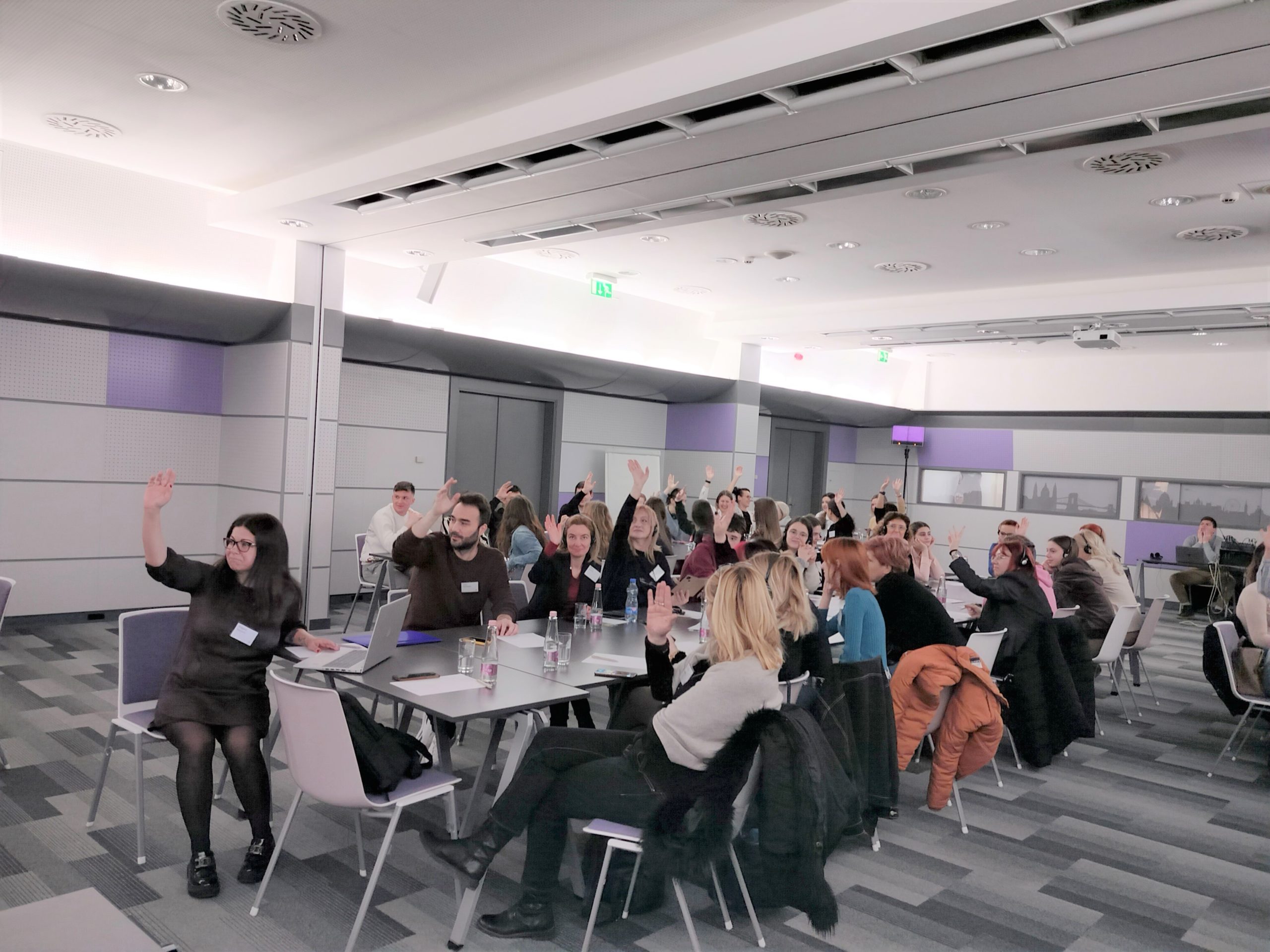The REVIS project reached more than 80 facilitators, teachers and 1,600 children
The project coordinated by Eurochild member Terre des Hommes Hungary on combatting peer violence in school comes to an end
The REVIS - Responding to violence against children in schools and adjacent settings - project, which has been running for more than two years and is co-funded by the European Union's Rights, Equality and Citizenship Programme 2014-2020 is coming to an end.
The two-day final conference was held on 8 and 9 March in Budapest, organised by the project coordinator Terre des hommes Hungary. This regional conference, in which all four participating countries - Bulgaria, Croatia, Romania, Serbia - were represented was a thematic advocacy event on school violence, where young people involved in the project played an active role alongside practitioners.
Summary of the project
Violence against children, whether in schools or in their own homes, is a worldwide problem, and one that can be observed in Europe, particularly in South-East Europe. Socio-cultural norms, social exclusion, poverty, the system and the inadequacy and lack of effective policies, teachers' skills and students' belief in the system are the main factors leading to violence against children in schools.
The REVIS project brings together five child protection organisations in South East Europe with a wealth of experience in promoting progressive principles for reducing violence against children, building the capacity and knowledge of professionals working with children, and preparing children to become an integral part of the debate and to engage in addressing harmful practices.
The overall aim of the project is to prevent, combat and address peer violence by transforming social and gender norms and behaviours among children; to create space for children to challenge the social and gender norms that lead to peer violence; and to become social influencers in developing solutions to the problem.
The project had two main objectives:
- Firstly, to develop an engagement programme in four countries, with the help of 80 trained facilitators and 8 trainers, based on the results of qualitative research on the social and gender norms that contribute to violence against children.
- This was followed by the start of joint work, collaboration between 1,600 children, young people and teachers on activities, campaigns and programmes to prevent and reduce peer violence in and around schools and other educational institutions (e.g. after school).
The Conference
On the first day of the conference, the participating delegations got to know each other, discussed their main experiences and lessons learned during the project implementation, and then the delegations finalised their interventions for the plenary conference for the following day, jointly reflecting on the key messages they intended to convey to the wider audience. In the second half of the day, the young people and teachers involved in the project visited the Móra Ferenc Primary School in Zugló, where they learned about a Hungarian good practice to tackle school violence called the Békés Iskolák (Peaceful Schools) programme. The education professionals from the four countries took part in a professional round-table discussion to learn about Terre des hommes' activities, its work on child participation and to exchange experiences on the current situation in education and responses to school violence at national level.
On the plenary day of the conference, 9 March, participants heard a presentation by a European Commission staff member on the EU strategy on the rights of the child and the functioning of the Eurochild European network. Later in the day, young people, together with their teachers, shared their experiences of the REVIS project with the audience. They then presented the important results and impacts achieved in the schools involved in the four countries, and the diverse methods and campaigns they have developed and implemented to tackle school violence. The audience heard several creative presentations from each country, some of which included a short film or even a musical composition. To close the day, the young people shared their chosen advocacy messages to combat school violence with the audience, and received responses and reflections from experts from their own countries.
Further Information


